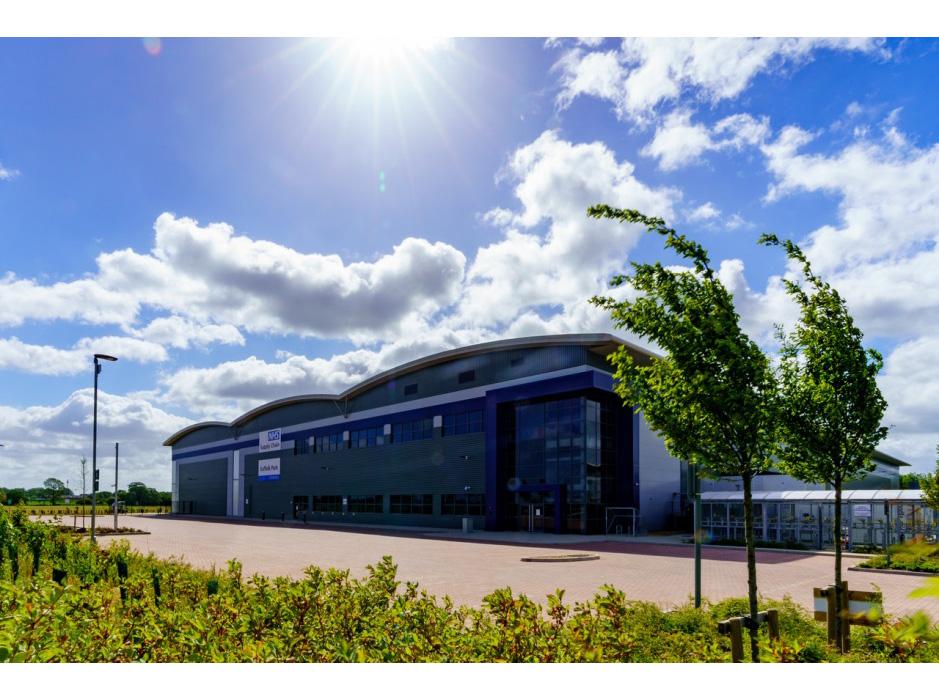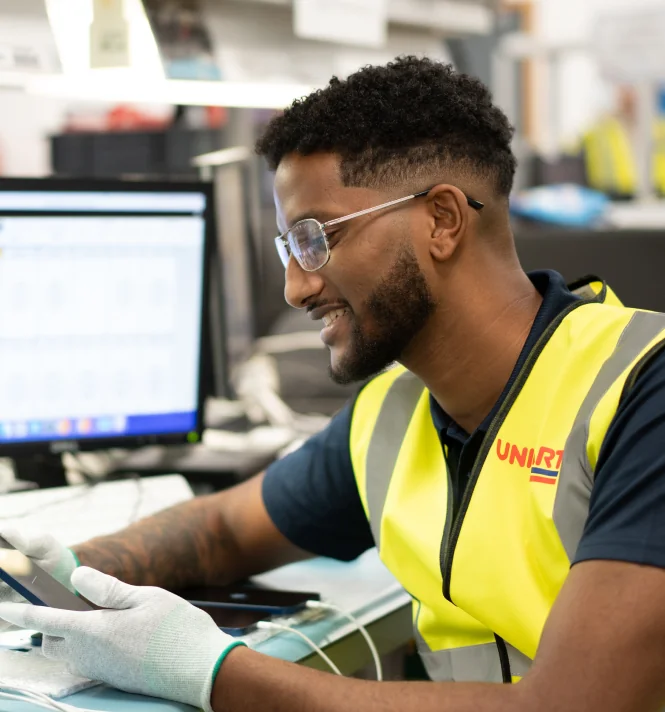The Solution
Working with our key customers and suppliers, we’ve introduced a number of practices that have been sustained and improved over the years, including the following:
- A zero waste to landfill policy for all waste types.
- Implementation of a series of environmental KPI’s to monitor, report and manage the environmental performance across sites.
- Tracking for key measures such as: energy consumption, carbon emissions, waste production, water usage and environmental compliance status, all of which are monitored and reviewed on a monthly basis.
- Development of a digital application which is reviewed by each site’s dedicated environmental representative.
- The use of Unipart Way tools and techniques identify improvements by teams to improve our environmental performance.
An example of how Unipart is focusing on the environmental impact is evident in the newly opened NHS Supply Chain site in Bury St Edmunds. This new state-of- the-art facility was opened as part of a long-term growth strategy to yield savings for NHS frontline services.
Environmental sustainability is core for both NHS Supply Chain and Unipart; this is why a sustainability project stream was set up for Suffolk Park. An advanced rainwater harvesting system replenishes water in all on-site amenities and LED roof lighting was installed that ensures both energy efficiency and associated light damage compliance with MDR. On the site premises, a total of 2,200 trees and 750 shrubs have been planted and electric vehicle charging stations installed, along with a large bike shelter. A dedicated bus stop has also been agreed with the local council to minimise vehicle pollution in the near future.
In many circumstances, collecting and analysing data helps to uncover issues that can be addressed simply. A good example of this was the environmental improvement that took place at the NHS Supply Chain site at Rugby. The NHS Supply Chain is one of Unipart’s customers, with eight major sites across the UK.
The site had a high volume of general waste in proportion to recyclable waste. Studying the waste generation on site, we found that the baler which is used to process cardboard was unable to handle the large size cardboard pieces we were receiving.
Working with our waste management partner, CHC, we introduced a second low cost baler to enable the Rugby site to process material of this size.






